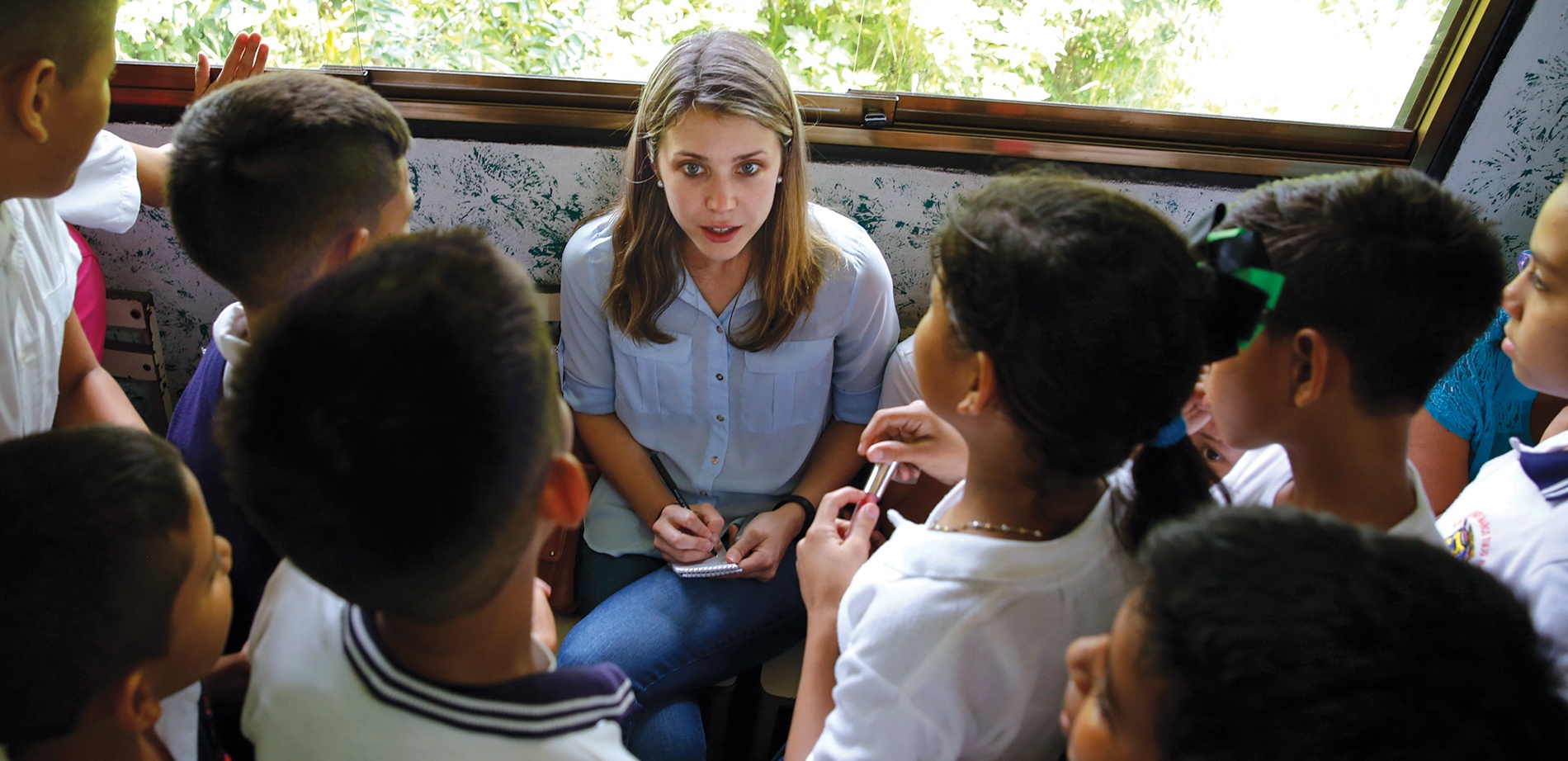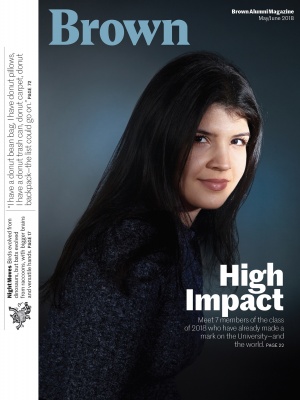Amid violent protests and rampant food shortages, Alexandra Ulmer ’11 has been covering the economic crisis in Venezuela for Reuters since 2014. The once prosperous oil nation has seen its political and economic stability collapse since the 2013 death of former President Hugo Chavez. In 2015, Reuters named Ulmer Reporter of the Year for her work exposing the inner workings of the Venezuelan state oil firm PDVSA. She answered questions over the phone from her home in Caracas.
Why did you decide to work in such a dangerous place? I was working for Reuters in Chile when the job opened up. I was very apprehensive. The bureau chief told me to go for two weeks and see what I thought. I loved it—I got a chance to cover the tail end of the 2014 protests, to go out and interview people during what were at the time brutal food and medicine shortages.
How do you stay safe? The Reuters operation here is strict on security. I go with a flak jacket, helmet, and gas mask for political protests. Ditto with going out to one of the more dangerous hillside slums—you don’t go alone, and you go during the daytime. Thankfully nothing has happened to me, but I know people who have been kidnapped and some who have even been killed.
How do you decide what to focus on? In general I try to have two tracks. It’s important to chronicle the social unraveling in the country—for example, visiting victims of diphtheria, which has reappeared because of medical shortages. But it’s also really important to go beyond that, to dig to the bottom of the decrepit oil industry, to investigate corruption and all the economic mismanagement that has led to the crisis, which is very difficult.
How are you able to find information? It’s never been easy to get information in Venezuela, but it’s becoming more and more difficult as the government clamps down and decision-making becomes more hermetic and centralized. In my entire three years here I have almost never gotten a response to an email or a phone call requesting comment. I try to find anecdotal evidence to support my reporting. There are a lot of Venezuelans who are angry about what’s happening, including some in the government. Increasingly, they are afraid of being fired or arrested, so they will call me on a relative’s phone at night or want to meet in secluded locations.
What’s made the strongest impact on you? The moment that struck the strongest chord for me happened when I was on the Venezuelan-Columbian border interviewing two sisters. One suddenly said, “Because the economic situation is getting so dramatic I want to get sterilized.” There was an unfortunate growing trend of women who didn’t want to have kids because the economic crisis was so severe, but at the same time they couldn’t find or afford contraception, so they decided sterilization was the best option. I thought it was a very powerful and upsetting view into the crisis.
What do you see as the future of the country? This year will almost certainly be more brutal than what we’ve seen before.





